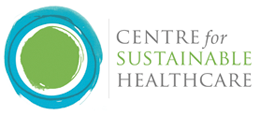Sustainable Healthcare Education
Special Study Module in Sustainable Healthcare
By: University of Oxford
Two final year medical students in Oxford took part in a two-week special study module (SSM) on “Sustainable Healthcare” in 2011-12. The students each chose to focus on one of the four dimensions of sustainable healthcare identified by the Sustainable Healthcare Education (SHE) Network, and undertook a related project.
Learning outcomes
Both students were expected to achieve the following core learning outcomes:
- Understand that the spread or containment of diseases, globally and locally, is affected by human behaviour and environmental and climatic change
- Understand that clinical care contributes significantly to environmental degradation, due to resource use (mainly water, raw materials and fossil fuels) and waste production (mainly carbon, other greenhouse gases, non-clinical waste for landfill and clinical waste for incineration).
- Understand that clinicians can maximise the sustainability and quality of care by using medical technologies effectively, managing information appropriately, minimising low value activities and using natural resources (non-pharmacological interventions) and human resources (self care) effectively
In addition, each student was asked to review the SHE Network recommended learning outcomes (see http://sustainablehealthcare.org.uk/sustainable-healthcare-education/resources/2012/01/sustainable-healthcare-priority-learning-outcomes ) and to select an area to focus on in further reading and for a project.
One student chose the “Management” theme. She attended an NHS Sustainable Development conference, with focus on Trust and Estates management. She collaborated with an anaesthetist and an operating department practitioner at the John Radcliffe Hospital in Oxford, who had been responsible for introducing recycling into the operating theatres, to plan and carry out a theatre waste audit and write up a case study, published online at http://map.sustainablehealthcare.org.uk/oxford-radcliffe-hospitals-nhs-trust/introducing-recycling-operating-theatres. In order to support further change in staff recycling behaviours, she (and students from another SSM) created a poster to inform staff about the initiative and feed back the impacts to date.
The second student chose the “Clinical Practice” theme. She carried out a literature review on evidence for walking interventions in hypertension and wrote an article to communicate this topic in a clinical framework for a student/GP audience (currently under revision). In addition, she attended Green Week lectures on climate change and health at the Whittington Hospital and interviewed participants in their Green Ward competition for a blog article, which was posted in the Sustainable Healthcare Education Network at http://sustainablehealthcare.org.uk/sustainable-healthcare-education/blog/2012/03/medical-student-reports-whittington-hospital-green-wee
Pedagogical format
Because the students were undertaking the SSM in two separate 2-week blocks, the main format was individual study, with educational supervision via email and face-to-face meetings.
Materials used
- Sustainable Healthcare Priority Learning Outcomes (SHE Network)
- Marmot Review of Health Inequalities (Marmot, 2010)
- NHS Carbon Reduction Strategy (NHS SDU, 2012)
- Sustainable in the NHS Health Check 2012 (NHS SDU, 2012)
- Moynihan R. The Greening of Medicine. BMJ 2012;344:d8360
- Mortimer F. The Sustainable Physician. Clinical Medicine 2010, Vol10, No2: 110-11
- Horne R. Compliance, Adherence, and Concordance: Implications for Asthma Treatment. Chest 2006;130;65S-72S
- Green Nephrology case study template, accessible from http://sustainablehealthcare.org.uk/green-nephrology/case-study-template
- Preventing damage from pharmaceuticals A primer (Health Care Without Harm, 2007), accessible from http://www.noharm.org/lib/downloads/pharmaceuticals/Prevent_Damage_from_Pharma.pdf
Curriculum
The SSMs are student-selected and take place after the completion of medical finals in Year 6, so there are few restrictions on the content and learning outcomes chosen.
Assessment
The learning was not graded or formally assessed but feedback was provided in person and on the SSM Self-Assessment & Sign-off form.
Quotes
“I undertook the Sustainable Healthcare SSM with the Centre for Sustainable Healthcare. I was able to pursue my own interests in how recycling can be implemented into NHS hospitals and got involved in running a project to assess the impact of introducing recycling bins into theatres. The SSM enabled me to better understand the impact of healthcare on the environment. Through implementing the recycling project I got to experience the challenges of change management on ground level and the strategies that can be used to overcome these challenges.”
Felicity Hughes, medical student
“I thoroughly enjoyed learning about sustainability in the NHS, a subject I had not previously really thought a great deal about. However, climate change is happening and the health implications are vast, so we, of all people, should be the biggest protagonists for change. The most poignant take home message from the two weeks was of "moral offset" - something I have thought about a lot in the months since my SSM - and that just because we feel we may do good in one area of our lives, that it lets us off the hook elsewhere.”
Emily Clark, medical student
The Centre for Sustainable Healthcare is based in Oxford and seeks to support the transformation of healthcare for a sustainable future. We wished to offer medical students in Oxford the opportunity to learn about sustainability, to gain some practical experience, and to reflect upon the opportunities to benefit health through preventative, low carbon healthcare in their future careers.
Centre for Sustainable Healthcare, Oxford
online at http://www.sustainablehealthcare.org.uk/sustainable-healthcare-education/resources/2012/05/oxford-ssm-sustainable-healthcare-2011-12
Lecture Courses/Student Engagement
By: University of Cambridge Medical School
- SSC: International Health – has a component on climate change (1st clinical year)- Workshop: Sustainability and Leadership – Introduction to Climate Change/Global Health (3rd clinical year)- Exploring opportunities for Y1 social context/health and illness. SHE team will use parts of Learning Outcome 4 in their Management and Leadership class and a few of the public-health related disciplines. The goal is to develop a coherent strand that can be mapped across the pre-clinical years.
University of Cambridge Medical School
Increase awareness of healthcare sustainability issues for students
